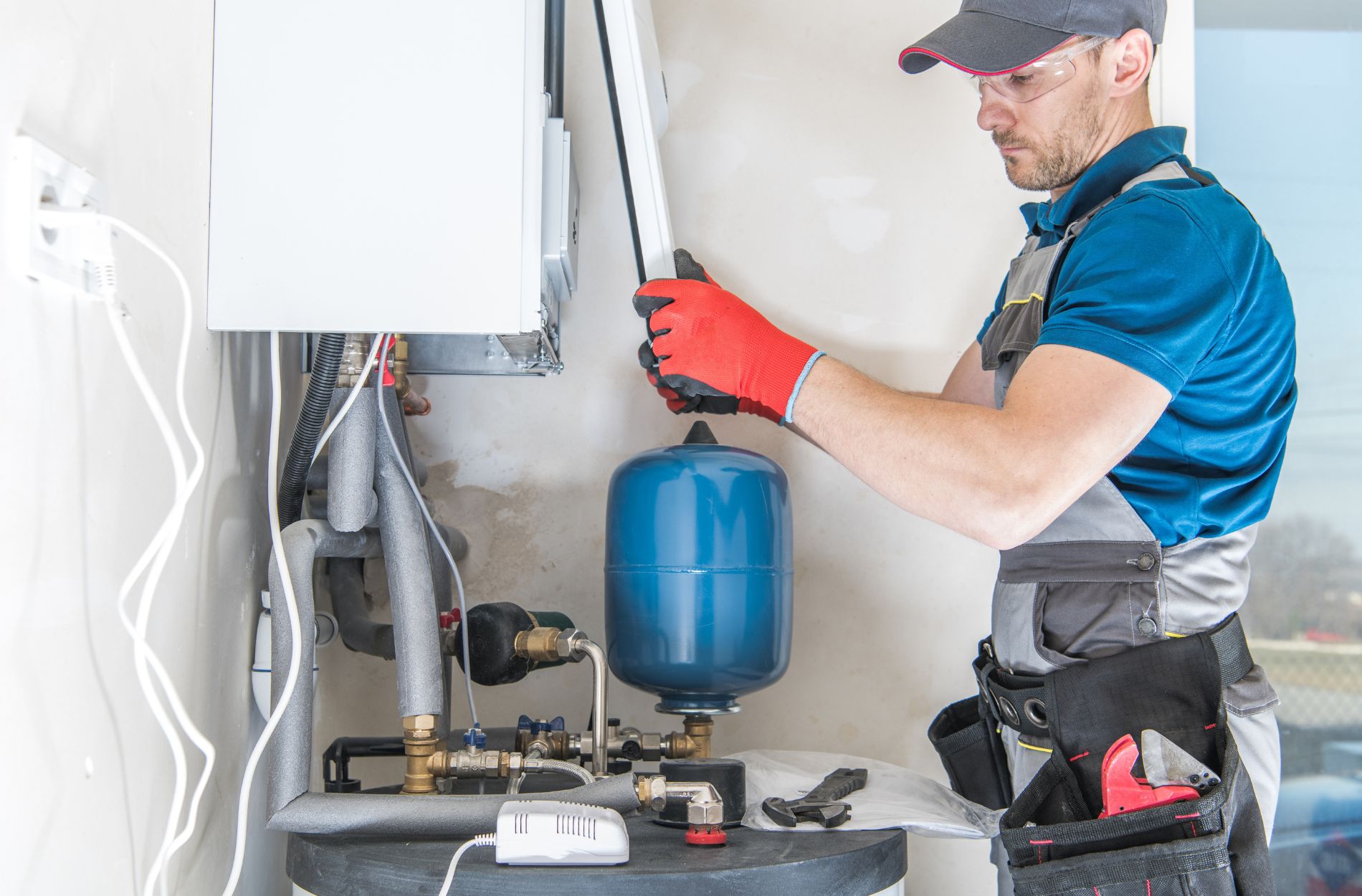If you’re hearing an odd popping sound from your water heater, you’re not alone. Homeowners in Batavia often begin noticing these noises as their water heaters age or experience heavy use. What may seem like a harmless sound can actually be a sign that something isn’t working the way it should. Ignoring it could lead to more serious issues affecting your hot water supply, indoor comfort, or even safety.
Popping sounds typically point to a buildup of pressure or material inside the tank. These issues don’t go away on their own and usually get worse over time. What starts as a minor noise can become a constant disruption or lead to a system failure. Taking action early can help you avoid higher energy bills, breakdowns, and the inconvenience of being without hot water when you need it most. The sooner you identify the cause, the easier and more affordable it is to correct.
Common Causes of Water Heater Popping Sounds
When water heaters start making a popping noise, it’s usually because something is interfering with the way the system heats water. These sounds often come from the lower portion of the tank where the heating element is located. Instead of heating water efficiently, the element may be struggling to push heat through accumulated debris or trapped air.
Here are the most common causes behind that popping sound:
– Sediment buildup: Minerals from hard water collect at the bottom of the tank over time. When the bottom heats up, water trapped under the sediment turns into steam bubbles, which burst through the layer and make a popping sound.
– Temperature fluctuations: If the thermostat is set too high, water can overheat and create pressure pockets. These rapid temperature shifts inside the tank cause snapping or popping noises as the water boils off rapidly.
– Metal expansion: As metal heats and cools, it naturally expands and contracts. In older tanks or during frequent heating cycles, this can generate loud clicks or pops as the metal reacts to temperature changes.
Each of these issues starts small, but over time they can lead to reduced system efficiency or even damage internal components. If you notice these sounds regularly, it’s likely your water heater needs attention soon.
Identifying Sediment Buildup in Your Water Heater
Sediment buildup is one of the most common reasons for unusual water heater noises. It usually begins as a harmless layer of mineral deposits, but over time, it can change how the system functions altogether. Batavia homes with harder water often see this happen more quickly, especially when the water heater doesn’t receive regular maintenance.
You might be dealing with sediment if:
– You hear a regular popping or rumbling noise while the heater is running
– There’s a noticeable drop in water temperature or heating performance
– Your hot water has a slightly rusty or cloudy appearance
– The water takes longer to heat or runs out faster than usual
An example of this might be a homeowner who starts noticing that the shower doesn’t stay warm like it used to. After a few weeks, the popping noises during heating become more frequent. In many cases, this is due to sediment thick enough to insulate the burner, making it work harder and wear down more quickly.
To spot sediment problems early, listen carefully during water heating cycles and monitor how the unit performs day to day. These small signs are often easy to overlook but are usually the first indicators that it’s time to flush the tank or schedule professional maintenance. Catching this on time can improve water quality, extend the life of your system, and stop unusual noises before they cause bigger issues.
Steps to Prevent and Address Popping Sounds
The good news is that many water heater noises can be prevented by sticking to a consistent maintenance routine. While the idea of flushing your system or adjusting settings may seem like a hassle, these simple actions protect your home’s comfort and can save you from bigger repairs in the future. If you’re in Batavia and dealing with hard water, this kind of maintenance becomes even more important.
To reduce or even stop the popping sounds coming from your water heater, try the following:
– Flush the tank at least once per year to clear out sediment buildup. This helps the system heat water more efficiently and quietly.
– Set your water heater’s thermostat to a safe and balanced temperature. Overheating increases the risk of boiling, which leads to more popping sounds and wear on internal parts.
– Consider installing a water softener if your home has hard water. It helps reduce the amount of minerals that reach your water heater tank in the first place.
– Check for signs of rust or water discoloration. These can show up before the popping becomes frequent and often mean sediment has started forming.
– Listen for changes in noise after showers or heavy hot water use. This can help track how often the system reacts with extra pressure or buildup.
While some of this upkeep can be routine, there are limits to what homeowners can handle without the right tools or experience. When sounds become louder or happen more often, or if hot water runs out faster than it used to, it may be time to bring in technicians to assess the full condition of your setup.
When to Consider Professional Help
Strange sounds aren’t just annoying. They often signal deeper problems that will eventually affect your water quality and comfort. If your heater has already been flushed and the noises continue, or if the thermostat is set properly but overheating still occurs, those are signs your unit needs attention. In some cases, these symptoms point to aging parts or systems that are no longer working efficiently enough to be worth the repair.
Our professionals are trained to dig deeper into heater issues that go beyond common fixes. We use tools to check for pressure imbalances, hidden leaks, or failing components that often lead to long-term damage or failure. Minor repairs can sometimes resolve the noise, but in many Batavia homes, recurring problems are a sign your water heater and related HVAC equipment may be nearing the end of its life. In those cases, a full system evaluation might lead to the recommendation of an AC replacement in Batavia for consistent energy savings and peace of mind.
Water heaters work hand in hand with other systems in your home, meaning one failing component can put stress on another. If you’ve had to replace smaller parts more than once, or have ongoing issues with heating speed or capacity, it may be time to look at the bigger picture.
Maintaining a Quiet and Efficient Water Heater
Getting ahead of water heater problems is the best way to protect your home comfort. Strange noises rarely fix themselves and can worsen fast, especially if ignored. Regular flushing, inspections, and smart temperature control go a long way in making sure your system runs quietly and efficiently all year long.
If the popping sounds persist even after basic maintenance, that typically means repairs or upgrades are necessary. Prompt service helps reduce downtime and prevents inconvenient cold showers or worse, complete unit failure at the wrong time. Whether your system needs cleaning, adjusting, or replacement, making the decision early reduces stress and often saves money in the long run.
When your water heater works the way it should, it heats water with less effort, stays safer, and avoids daily interruptions from disturbing noises. Homeowners in Batavia can stay ahead of problems by staying alert to changes and bringing in our professionals as soon as something feels off. Staying proactive is the key to keeping your home comfortable and systems operating reliably.
If you’re experiencing persistent water heater issues that disrupt your comfort, it may be time to explore your options for hot water heater repair in Hamlin, NY, to support your home’s overall heating and cooling performance. Frontier Heating can help you take proactive steps to prevent long-term damage and ensure consistent efficiency. For a quick estimate or to book a service visit, please contact us today.








